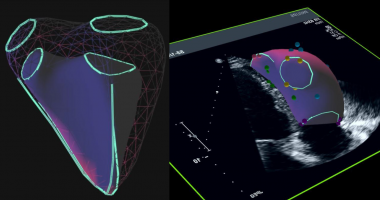- WPD Pharmaceuticals (WBIO) drug candidate WP1066 may be able to reprogramme the immune systems of animals with glioblastoma.
- Last year a published scientific paper detailed how WP1066 prevented tumour growth in mice from the clinical trials.
- The research suggests that WP1066 works best in tandem with radiation therapy.
- WPD’s share price is down 3.33 per cent, with shares trading at $1.45 apiece.
WPD Pharmaceuticals (WBIO) has announced that drug candidate WP1066 may be able to reprogramme the immune systems of animals with glioblastoma.
Last year, a scientific paper published the discovery of the clinical trials which tested the drug. The paper also detailed how the drug prevented tumour growth in the trial’s animal subjects.
Glioblastoma is an aggressive form of cancer which starts in the brain, and usually recurs in spite of maximum treatment.
Most people with glioblastoma are likely to die within 12 to 15 months of diagnosis. Only a small percentage live more than 5 years after diagnosis.
WP1066 is currently being tested as a brain cancer treatment in clinical trials at the University of Texas MD Anderson Cancer Centre.
The research has shown that WP1066 can cause apoptosis (tumour cell death) by inhibiting the gene protein STAT3. The drug can also trigger an immune response that results in T-cells attacking the tumour cells.
In 2019, a scientific paper called “Immunological Reprogramming in the CNS Tumour Microenvironment and Therapeutic Efficacy of Radiotherapy with STAT3 Blockade”, published the research.
The paper showed that WP1066 caused mice with normal immune responses to develop “immunological memories”. These memories made it easier for the mice’s bodies to prevent tumour growth after tumour cells were reintroduced. This resulted in many of the mice becoming long-term survivors, a rarity in glioblastoma cases.
The study also found that WP1066 works best in tandem with radiotherapy treatment, instead of as a stand-alone therapy.
WPD CEO, Mariusz Olejniczak, spoke with optimism about the breakthrough. “The findings in the report by Dr Martina Ott, of MD Anderson Cancer Centre in collaboration with Dr Amy Heimberger […] are very encouraging.”
“Any kind of discovery in treating glioblastoma is exciting, and these findings could have a significant impact on understanding the role of STAT3 inhibition, as well as focus our continued development of WP1066.”
WPD’s share price is down 3.33 per cent, with shares trading at $1.45 apiece.





